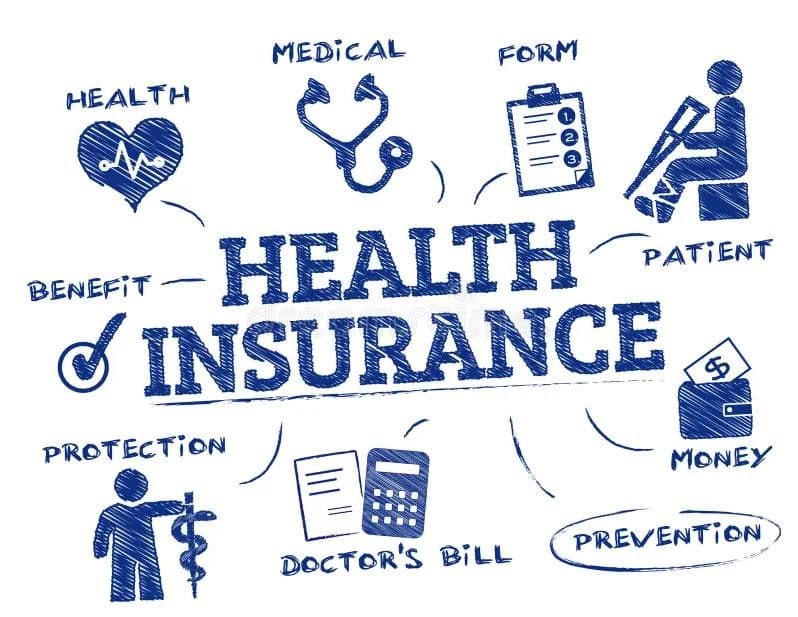Applied Behavior Analysis (ABA) therapy has emerged as an effective treatment approach for individuals with autism spectrum disorder (ASD). Maryland, like many other states, has established clear regulations to ensure the quality of ABA services and protect the rights of those who receive them. Together, we’ll take an in-depth look at Maryland’s ABA therapy regulations, covering licensing requirements, standards for service delivery, and the latest updates that impact both service providers and families seeking therapy for their loved ones.
Understanding ABA Therapy in Maryland
ABA therapy is a scientifically validated approach that uses principles of learning and motivation to encourage positive behaviors and reduce harmful ones. In Maryland, ABA therapy is primarily utilized to treat children and adults with autism but is also beneficial for individuals with other developmental or behavioral challenges.
Success Stories
“Move Up ABA has been a lifeline for our family. Before starting therapy, our son struggled with daily routines and communication. Now, he’s more independent and even initiated a conversation with a classmate for the first time! The progress we’ve seen in just six months is truly remarkable.”
- Emily R., Silver Spring, Accountant
“As a single dad, I was overwhelmed trying to manage my child’s behavior. The Move Up ABA team not only provided amazing support for my little girl but also taught me practical strategies to use at home. Their in-home sessions fit perfectly with our busy schedule. I’m so grateful for their patience and expertise.”
- Michael T., Rockville, Middle School Teacher
“We were hesitant about starting ABA therapy, but Move Up ABA’s approach put us at ease from day one. Our twins have made incredible strides in their social skills and self-regulation. The therapists are like extended family now, and we couldn’t be happier with our decision to work with them.”
- Aisha and James L., Simpson, Police Officers
Ready to start your child's journey to success? Schedule a free consultation today! 📞 Call (410) 497-8865.
Given the increasing demand for ABA services, the state has developed a robust framework to govern the delivery of these therapies. These regulations ensure that practitioners adhere to ethical practices, maintain appropriate certifications, and deliver effective, individualized therapy programs.
Key Maryland ABA Therapy Licensing Requirements
State Licensing for Providers
To deliver ABA therapy in Maryland, providers must meet specific state licensing requirements. These regulations ensure that therapists are appropriately trained and have the necessary credentials to provide high-quality care. Key licensing criteria include:

- Behavior Analyst Certification: All behavior analysts must be board-certified by the Behavior Analyst Certification Board (BACB). The certification demonstrates that the clinician has the expertise required to design and implement ABA interventions effectively.
- Licensing by the Maryland Department of Health (MDH): The MDH oversees the licensing of agencies and clinics offering ABA services. Providers must submit an application, provide documentation of their credentials, and undergo periodic inspections.
- Supervision Requirements: Maryland mandates that all ABA therapists work under the supervision of a licensed and board-certified behavior analyst (BCBA). This ensures that therapists deliver evidence-based interventions and that clients receive appropriate treatment.
Qualified ABA Professionals
In Maryland, ABA therapy services must be provided by licensed professionals, which include:
- Board-Certified Behavior Analysts (BCBAs): These professionals are responsible for creating treatment plans, supervising therapists, and ensuring treatment effectiveness.
- Board-Certified Assistant Behavior Analysts (BCaBAs): BCaBAs support BCBAs in delivering interventions, conducting assessments, and collecting data under the supervision of a BCBA.
- Registered Behavior Technicians (RBTs): RBTs are responsible for implementing the treatment plans designed by BCBAs. They provide direct therapy to clients and collect data on client progress.
Maryland’s Requirements for ABA Therapy Service Providers
Agency Accreditation
ABA therapy providers must be accredited by an approved accrediting body to ensure the quality and effectiveness of the services they offer. Accreditation bodies recognized by the Maryland Department of Health include the Behavior Analyst Certification Board (BACB) and other similar professional organizations. Providers must demonstrate their adherence to national standards for ABA therapy, which includes clinical oversight, ongoing training, and a commitment to ethical service delivery.
Client-Centered Treatment Plans
Maryland regulations emphasize that all ABA therapy must be personalized to the individual’s needs. By law, providers need to conduct thorough assessments to understand the client’s unique challenges and develop a personalized treatment plan. This plan must include measurable goals, interventions based on evidence-based practices, and strategies to monitor progress.
Data Collection and Analysis
Accurate data collection is a cornerstone of ABA therapy. Maryland regulations require that all behavior analysts track the client’s progress through data collection tools. Based on this data, the therapist will adjust treatment plans when necessary. Regular updates should be provided to both clients and their families.
Family Involvement
In Maryland, families play a critical role in the ABA therapy process. Regulations require that families be actively involved in treatment planning and implementation. This includes:
- Ongoing Communication: Regular meetings between the family and therapists keep families updated on progress and any changes to the treatment plan.
- Training for Caregivers: Families and caregivers receive training on how to support ABA interventions at home, helping to ensure consistency across different environments.
Compliance with Insurance and Medicaid Regulations

Maryland law requires health insurance plans to cover ABA therapy. This coverage applies to children diagnosed with autism spectrum disorder (ASD), with some plans covering therapy for adults as well. Key points to understand about insurance and Medicaid coverage include:
- Medicaid Coverage: Maryland’s Medicaid program covers ABA services, but clients must meet certain criteria to qualify for therapy under this plan.
- Private Insurance: Many private insurance providers in Maryland must cover ABA therapy for individuals with ASD. The state mandates that insurers provide coverage without imposing arbitrary limits on the number of sessions or requiring excessive documentation.
Monitoring and Enforcing ABA Regulations in Maryland
The Maryland Department of Health (MDH) is responsible for overseeing the enforcement of ABA therapy regulations. The MDH ensures compliance through regular audits, assessments, and investigations of complaints. Additionally, the state conducts periodic reviews of treatment plans, verifying that providers are adhering to the guidelines set forth in the Maryland regulations.
Inspection and Compliance Checks
Licensed ABA providers in Maryland are subject to routine inspections to ensure that they comply with the regulations. These inspections cover areas such as:
- Clinical Practices: Providers must demonstrate that they are following evidence-based ABA practices and adhering to treatment protocols.
- Facility Standards: Agencies and clinics must maintain appropriate facilities that are conducive to therapy, including access to required equipment and privacy for clients.
Complaints and Legal Action
If a client or family believes that an ABA provider is not following the required regulations, they can file a complaint with the Maryland Department of Health. The department investigates such complaints and takes corrective action as needed. This may include sanctions or, in extreme cases, revocation of a provider’s license.
Updates to Maryland ABA Therapy Regulations
The state of Maryland continually revises its regulations to adapt to new research, best practices, and the evolving needs of individuals receiving ABA therapy. Some of the recent updates include:
- Telehealth Services: Given the growing reliance on remote services, Maryland now permits ABA therapy to be delivered via telehealth in specific circumstances. This expansion aims to make services more accessible to individuals in rural or underserved areas.
- Increased Focus on Cultural Competence: Recent updates also emphasize cultural competence in therapy delivery. Providers are now required to undergo training to ensure that therapy is sensitive to the diverse backgrounds of clients.
- Enhanced Family Support: Maryland is placing more focus on family-centered care, with new requirements for regular family training sessions and increased involvement in the therapeutic process.
Conclusion

Maryland’s ABA therapy regulations ensure that individuals with autism and other developmental challenges receive high-quality, personalized, and evidence-based care. By adhering to these guidelines, service providers can guarantee that they are delivering therapy in compliance with state laws while meeting the needs of their clients.
As the field of ABA continues to evolve, the state remains committed to updating regulations to reflect the latest research and best practices. Providers, families, and clients can work together within this framework to promote the best possible outcomes in ABA therapy.
At Move Up ABA, our mission is to enhance the lives of individuals with autism through dedicated, personalized support. Our team of experienced professionals specializes in Applied Behavior Analysis (ABA), providing tailored interventions that empower children and families. Take the first step and reach out for your consultation today!





